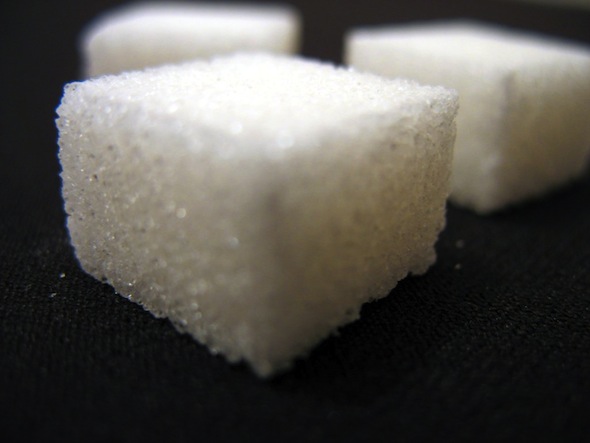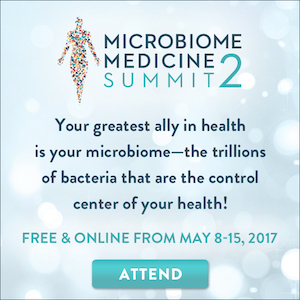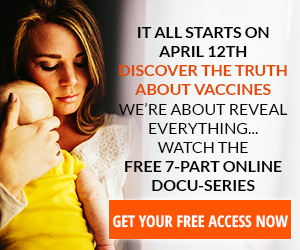Cancer is a disease of civilization. It has been well established that our hunter-gatherer ancestors did not have any cancer, much less the epidemic of cancer that we have today. The relationship of our modern high sugar, high carbohydrate diet to cancer was studied and the conclusions of the researchers may interest you.
The study was published in the journal, Nutrition and Metabolism, October 2011. Researchers, Rainer Klement and Ulrike Kammerer conducted a comprehensive review of the literature involving dietary carbohydrates and their direct and indirect effect on cancer cells.
Low Carb Hypothesis
Over the last years, evidence has accumulated suggesting that by systematically reducing the amount of dietary carbohydrates (CHOs) one could suppress, or at least delay, the emergence of cancer, and that proliferation of already existing tumor cells could be slowed down.
Their hypothesis is supported by a lot of existing research that documents the association between modern chronic diseases such as metabolic syndrome and diabetes and the risk of developing or dying from cancer.
There are four reasons for this association to cancer
1 — Most malignant cells depend on steady glucose availability in the blood for their energy. Cancer cells are not able to metabolize significant amounts of fatty acids or ketone bodies so they need sugar.
2 — High insulin and insulin-like growth factor (IGF-1) which is needed for the control of blood sugar levels, resulting from chronic ingestion of high carbohydrate meals (like the typical American diet, that is full of grains and sugars), can directly promote tumor cell proliferation via the insulin/IGF1 signaling pathway.
3 — Ketone bodies (ketone bodies are created from fats) that are elevated when insulin and blood glucose levels are low, have been found to negatively affect multiplication of different malignant cells in vitro. They have also been found to be unusable by tumor cells for metabolic demands. Additionally, a multitude of mouse models have shown anti-tumorigenic properties of very low carbohydrate-ketogenic diets.
4 — Many cancer patients also exhibit dysregulated glucose metabolism which presents as insulin resistance.
They took the logical approach
The researchers compared individuals that get cancer with those that do not. They found cancer to be rare amongst uncivilized hunter-gatherer societies.
One main reason is…
the switch from the “caveman’s diet” consisting of fat, meat and only occasionally roots, berries and other sources of carbohydrate (CHO) to a nutrition dominated by easily digestible CHOs derived mainly from grains as staple food would have occurred too recently to induce major adoptions in our genes encoding the metabolic pathways. This is even more the case for the changes that occurred over the past 100 years, in particular the switch from labor in the field to a sedentary lifestyle and an increase in the consumption of easily digestible CHOs with high glycemic indices (GIs), leading to diseases of civilization that are strongly associated with the so-called Western way of life.
Sugar intake is linked to modern diseases
High sugar intakes have definitely been associated and linked with many disease states.
Metabolic syndrome: Way back in 2004 the Journal of American Cardiology published Weinberg’s conclusion that,
This diet [the high carb/low fat diet recommended by medical and government organizations] can no longer be defended by appeal to the authority of prestigious medical organizations or by rejecting clinical experience and a growing medical literature suggesting that the much-maligned low-carbohydrate-high-protein diet may have a salutary effect on the epidemics in question.
Alzheimer’s disease: Published in 2004 in the Journal of Medical Hypotheses, Henderson concluded that,
A change in diet emphasizing decreasing dietary carbohydrates and increasing essential fatty acids (EFA) may effectively prevent AD. Interventions that restore lipid homeostasis may treat the disease, including drugs that increase fatty acid metabolism, EFA repletion therapy, and ketone body treatment.
Cataract and macula degeneration: Published in 2006 in the American Journal of Clinical Nutrition, Chiu et al concluded that,
Our results suggest that dietary GI [glycemic index] may be an independent risk factor for ARM [age related maculopathy].
Gout: Published in 2000 in the Annals of the Rheumatic Diseases, Dessein et al found that insulin resistance has been increasingly implicated in the pathogenesis of gout. They concluded that,
The results suggest that weight reduction associated with a change in proportional macronutrient intake, as recently recommended in IR [insulin resistance], is beneficial, reducing the SU [serum uric acid] levels and dyslipidaemia in gout. Current dietary recommendations for gout may need re-evaluation.
People with these diseases have an increased risk of cancer
Gout increases the risk of cancer. Metabolic syndrome increases the risk of cancer. Age related macular degeneration increases the risk of cancer. Additionally, many other diseases of modern culture increase the risk of cancer.
These diseases are all related to high sugar intake. It clearly begs the question of whether or not high carbohydrate diets support cancer cell growth and proliferation.
Early connection of cancer to sugar
As early as 1921, it was observed that cancer cells utilize sugar much faster than normal cells. In 1923, Otto Warburg observed that tumor cells would convert glucose to lactate in the presence of oxygen (aerobic glycolysis) — in sharp contrast to normal cells that would have a decreased uptake of glucose and decreased production of lactate in the presence of oxygen.
Benefit of the ketogenic diet
Most malignant cells lack key mitochondrial enzymes necessary for conversion of ketone bodies and fatty acids to ATP. The researchers in this study published in the British Journal of Cancer in 1983, concluded that,
tumours of non-hepatic tissues may be unable to metabolize ketone-bodies and suggest a therapeutic strategy for selective starvation of the tumour by dietary modification.
Other researchers have suggested using a high fat, ketogenic (80% fat) diet in cancer. The ketogenic diet has been successfully used in childhood epilepsy, since the 1920’2. The ketogenic diet has also been used in adult epilepsy and in treating obesity.
The ketogenic diet and inflammation
It has been well established that inflammation drives tumor growth. Even moderate carbohydrate restriction can reduce markers of chronic inflammation that are associated with atherosclerosis and type II diabetes — both of which are linked to chronic inflammation.
Grains are associated with inflammation
According to the authors of this study, grains can induce inflammation in susceptible individuals due to their content of omega-6 fatty acids, lectins and gluten . In particular gluten might play a key role in the pathogenesis of auto-immune and inflammatory disorders and some malignant diseases. In the small intestine, gluten triggers the release of zonulin, a protein that regulates the tight junctions between epithelial cells and therefore intestinal, but also blood-brain barrier function.
Recent evidence suggests that overstimulation of zonulin in susceptible individuals could dysregulate intercellular communication promoting tumorigenesis at specific organ sites .
They go on to state the Paleolithic style diets, which remove grains from the diet, have been shown to improve glycemic control and cardiovascular risk factors more effectively than typically recommended low-fat diets rich in whole grains.
Actual human studies
There have not been a lot of clinical studies using the ketogenic diet in cancer patients until recently. However, the few that are in progress or that have been done, have shown a lot of promise in spite of the fact that these patients will lose weight on this diet — which is generally not in the best interest of a patient with cancer.
What about the prevention of cancer?
A study recently published in Cancer Research in 2011 reported that NOP mice, which normally have a 70 – 80% chance of developing breast cancer over their lifetime due to genetic mutations, stayed tumor-free at 1 year of age when their calories from carbohydrates were limited to 15%. The mice whose diet was 55% carbs developed tumors.The researchers concluded that,
our findings offer a compelling preclinical illustration of the ability of a low CHO diet in not only restricting weight gain but also cancer development and progression.
Conclusions
The effects of carbohydrates, sugars and grains on tumor growth has been established. Clearly, a low carbohydrate diet — the ketogenic diet is a tool that should be considered in cancer patients because of the many associations with better outcomes.
The restricted carbohydrate diet may also be effective in reducing incidences of metabolic syndrome, and other modern diseases.
Go grain-free
A grain-free diet has been used to improve many conditions.
Get Started Today
In this 12-week class I share with you everything you need to know to get going — and stay on the diet. From the basics — learning how to make basic condiments and staples such as coconut milk, coconut milk yogurt, homemade mayonnaise, coconut butter and soaked nuts — to making fermented foods and bone broth — to breakfasts, lunches and dinners.
What You Get in This Class
You’ll get lifetime access to 12 weeks of classes including:
- Over 80 video tutorials
- Over 150 recipes!
Click here to see the full class schedule
Sign Up Now
You will have lifetime access! Once you are enrolled, you can go back again and again to the video lessons and recipes and learn at your own pace.
You can view these videos anytime and anywhere — in the comfort of your own home and in your pj’s if you care to! If you are not completely satisfied you may return the class for a full refund within 30 days — no questions asked. Click here for the refund policy.
Use coupon code NEWYEAR2012 to save $60.00 for a price of $139.00
Hurry!
Click here to register












